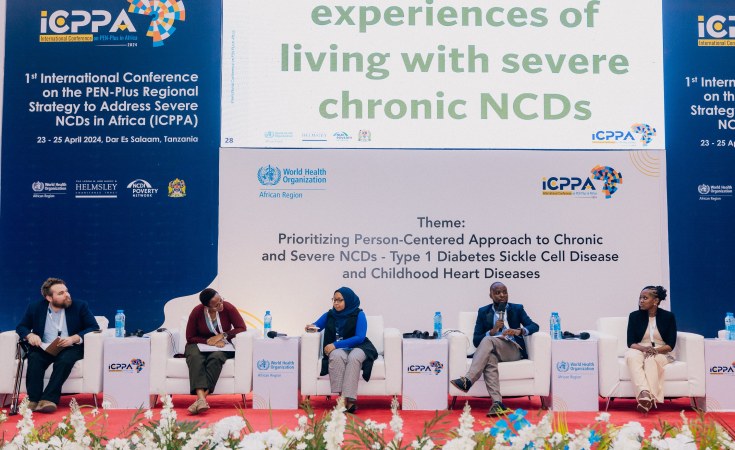Non-communicable diseases are killing more and more people in South Africa yet the government missed out on raising a total of more than R15 billion for prevention efforts, argues Dr Evelyn Thsehla.
Non-communicable diseases (NCDs), such as diabetes, cancers, heart diseases, and chronic lower respiratory diseases, have surpassed HIV and tuberculosis in terms of annual numbers of deaths caused in South Africa. In 2018, diabetes was the second leading cause of deaths in the country, according to Statistic South Africa.
Excessive sugar consumption has been linked to diabetes, high blood pressure and obesity. As a mechanism to reduce the consumption of sugar sweetened beverages, the South African government introduced the health promotion levy in 2018. When the health promotion levy was introduced, it was envisaged that it will increase prices of sugar sweetened beverages, which would lead to a reduction in the consumption of these beverages, ultimately leading to reduced calorie intake in the form of sugar.
National Treasury's initial proposal was to introduce a tax equivalent to 20% of the price of a liter of the most consumed sugar sweetened beverages. However, the health promotion levy was introduced at an equivalent of 10% of the price of a liter or a rate of 2.21 cents per gram of sugar, with the first 4g/100 ml exempted from the tax.
In his budget speech of February 2022, Finance Minister Enoch Godongwana announced plans to increase the health promotion levy from 2.21 cents/g to 2.31 cents/g, with effect from 1 April 2022. This was however postponed a few weeks later, with National Treasury citing the need for broader stakeholder consultation. In this year's budget speech, Godongwana was silent on the levy, while other similar taxes such as alcohol and tobacco were increased . In short, since its introduction in 2018, the sugar tax has not once been increased to keep up with inflation. In effect this amounts to the tax having been cut year after year.
Missed opportunity to prevent obesity and NCDs
Sugar intake from sugar sweetened beverages has declined since 2018 following the implementation of the health promotion levy. An observational study published in the Lancet Planet Health in 2021 shows that consumption of sugar sweetened beverages declined from 519 mL/person per day to 443.39 mL/person per day after the implementation of the health promotion levy. Studies conducted in Cape Town and Johannesburg have shown similar results. Another study conducted using national level data has shown that product reformulation by manufacturers led to changes in sugar content of beverages purchased by households.
While significant progress has been made in reducing sugar-sweetened beverage consumption, the health effects of such reduction at the population level may take longer to be realised. In the long term (in about 20 years), a 10% tax on sugar sweetened beverages will help to reduce type 2 diabetes incidence, particularly among people in middle income groups. Furthermore, the reduced consumption among low-income groups will avert many new cases which will consequently reduce the overall prevalence of diabetes. It will however require aggressive implantation of the health promotion levy in line with inflation to reduce affordability of sugar sweetened beverages for these health gains to be realised
Missed opportunity to increase revenue for healthcare
The introduction of the health promotion levy has provided an additional source of income to the fiscus since implementation. Over the past five years, the National Treasury has collected an average of R2.34 billion annually. In the 2018/2019 fiscal year, the government collected R3.2 billion from the health promotion levy. For the 2023/2024 fiscal year, the government is anticipated to raise about R2.33 billion from the health promotion levy. Over the 5 years, the health promotion levy would have contributed about R13.4 billion to the National Revenue Fund. Had the health promotion levy been increased, government would have raised over R15 billion. These additional funds could be used for healthcare activities such as health promotion as it was initially recommended.
While the health promotion levy and other health related taxes such as tobacco and alcohol are not ringfenced in South Africa, there are advantages of earmarking such taxes. Governments may earmark tax revenue for priority areas such as chronic disease prevention. The National Department of Health has obesity and NCD prevention strategies which are funded with money from National Treasury. Implementation of the obesity prevention strategy, which is expected to cost about R1.7 billion for the period 2023 - 2028 could be funded from an increased levy.
This strategy has been shown to be effective in other countries. In Thailand, the Thai Health Promotion Foundation receives annual revenue of about 120 million USD (R1.8 billion) from a 2% surcharge on all tobacco and alcohol taxes, shows research published in the Bulletin of the World Health Organization, an open-access public health journal. The main objective of the fund is to generate knowledge, social mobilisation, and policy advocacy. The research showed that between 2001 and 2014, Thailand was able to reduce smoking from 22.5% to 18.2% and alcohol consumption from per capita in 2005 to 6.9 liters in 2014 using this resource.
A win-win policy
The health promotion levy has been shown to be effective post implementation. The benefits derived from the levy are however at a risk of being lost as sugar sweetened beverages become more affordable again as a result of the tax not being increased. For the health promotion levy to continue to be effective, the rates should be increased and adjusted regularly, at least for inflation in line with the consumer price index - the price of a weighted average market basket of consumer goods and services purchased by households - reported by Statistics South Africa.
This is a win-win policy; government raises revenue; sugar-sweetened beverage consumption declines; health care costs are averted, and low socio-economic groups are protected from unhealthy diets.
*Thsehla is a health economist and the research director within PRICELESS SA, a research unit run from the School of Public Health at the University of the Witwatersrand.


